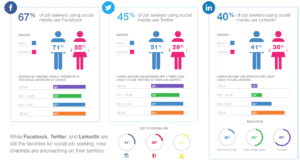Last Updated on 12/26/2023
You’ve just landed an interview for a government job. Congratulations! Now what? You may be nervous and not sure what to expect. But with some basic preparation, you can make your government job interview success. Preparing for a government job interview is not difficult, but to be successful it does require some time and research.
Table of Contents
Government Job Interview Questions and Answers
Many government job interviews rely upon behavior-based questions, meaning that they will ask you about your past job performance and behavior. You may be asked federal interview questions that begin with “tell me about a time when…”. This is where having done your research will come in handy.
If you know the company and what they’re looking for in the job, you can anticipate the sort of questions you’re likely to be asked. Practice your answers out loud, being sure to keep them concise. Humans tend to have limited attention spans, so your interviewer(s) will start to lose attention if you meander for too long in your answers.
As with any federal job interview, focus on your experience, skills, and positive attributes as they relate to the job. Rehearsing your answers will help ensure that you remain thorough yet concise.
Specify your government experience first, then list your business experience or other experience second. Even if it is out of the reverse chronology, the hiring manager will want to see your federal positions first.
In federal government job interviews, many interviews will follow the Uniform Guidelines for Employee Selection. This means that all candidates will be asked the same questions and in the same order. A byproduct of this is that the interview may feel robotic, and there may not be too many follow up questions unless clarification is needed. The good news is that the interview questions themselves may be readily available online, so you can prepare even more thoroughly for what you are likely to be asked.
Top 10 Interview Questions for Government Jobs
An invitation to interview for a government job means that you should start practicing your responses to common government job interview questions. Use the insights for each question to create your best answers and stand out as a quality candidate.
 1. Why do you want to work for the government?
1. Why do you want to work for the government?
Don’t reply like: “I’m qualified and looking forward to paid holidays”.
Better say: “I want to be part of something important to society. The mission of the Department of Agriculture excites me because it’s critical for food safety”.
Advice: You’ll make a better impression with an answer geared toward the purpose of the government agency. Whether you’re looking to work for a state like California or Virginia or the provincial government of Alberta, recruiters want to know that you’re motivated to serve the public.
2. What was your relationship like with your previous supervisor?
Don’t reply like: “That person discriminated against me. She denied all of my requests and dumped too much work on me”.
Better say: “My supervisor brought out my ability to solve problems and meet deadlines. For example, we had an emergency when a warehouse flooded and spoiled inventory. I had to work late to reroute over 800 medication deliveries from other warehouses and prevent shortages at hospitals”.
Advice: Find a way to communicate positive aspects of your relationship with a boss and show how you overcame challenges. You really don’t want to dwell on bad feelings toward a supervisor because it could make you look difficult to work with.
3. Why did you leave your last job?
Don’t reply like: “The pay and benefits were terrible, and the long hours took a toll on my personal life”.
Better say: “Although I got good performance reviews, the company did not have a competitive pay structure or training opportunities. I want a chance to expand my skills and grow professionally”.
Advice: Don’t hit interviewers with a bunch of complaints. Be gently honest while providing an answer that illustrates your talents and desire to contribute.
4. How will you deal with downtime?
Don’t reply like: “I’ll invest time in getting to know my co-workers.”
Better say: “Slow workdays offer a chance to revisit issues that got swept aside during busy periods. I’ll identify ways to improve operations”.
Advice: Recruiters want to know that you’re willing to use downtime to reflect and improve.
5. Tell us about yourself
Don’t reply like: “I have a wife and two dogs. In the winter, I like to visit comic conventions because I got into cosplay when I was in college earning my computer science degree”.
Better say: “I’m a little nerdy like the stereotype of a computer scientist. I still enjoy a good comic con, but I’ve grown motivated to tackle real-world problems like fighting attempts to hack servers at the Internal Revenue Service. I want to do my part to protect sensitive information and maintain people’s confidence in the system”.
Advice: Most people fall into the trap of rambling on about their education, personal life, and work experience. Feel free to inject some personality but frame your educational and job credits as assets for the organization.
6. Do you have any physical limitations that will influence your ability to perform this job?
Don’t reply like: “I know you can see that I’m pregnant, but I promise that my family won’t interfere with my work.”
Better say: “My due date is in 3 months. After I recover from childbirth, I’ll be ready to work full time. At my last job, my initiatives reduced defects on the production line by 28 percent.”
Advice: Going to a government job interview pregnant creates obvious timing challenges for some recruiters. As an equal opportunity employer, however, a government agency must give you fair consideration. If you’re visibly pregnant, you should be honest about it while displaying your ability to be prepared and organized. If you follow tips about what to take to a federal job interview, you will look like a dependable person. You should bring along additional work history information, a writing sample if appropriate, a notepad, and a copy of the job announcement. Similarly, federal job phone interview tips recommend having these items in front of you so that you can retrieve information quickly.
7. What attracted you to this position?
Don’t reply like: “I’m tired of how the for-profit sector treats customers. I want to help people.”
Better say: “I’m at a place in my life where I can travel on short notice, and my skills will serve the mission of FEMA. My years in the U.S. Army have prepared me to enter areas where the grid is down and manage the distribution of supplies like those that FEMA did recently after the hurricanes and wildfires.”
Advice: Show your knowledge of the department’s duties and how your work experience would adapt to the position.
8. What personality traits do you think benefit a civil engineering job?
Don’t reply like: “A person needs to be energetic and able to get along with co-workers.”
Better say: “A civil engineer must be patient and willing to spend time on details. This self-discipline needs to be balanced with traits like diplomacy and flexibility because I’ll need to cope with delays.”
Advice: Details that explain how personality traits mesh with a job will strengthen your answer. Ideally, you’ll provide an example from your work experience when patience and diplomacy produced success.
9. Where do you see yourself in five years?
Don’t reply like: “I really don’t know what to expect. Life could take me in many directions.”
Better say: “After exploring my professional interests, I’m ready to focus on statistics and work with the large quantities of data processed by the Department of Labor.”
Advice: The interviewer wants to know if you see this job as a temporary place while you wait for something better or a place to support a mission important to society.
10. What is your greatest weakness?
Don’t reply like: “I care about what people think too much and try to be a people pleaser.”
Better say: “In my job at the hospital, I tried to make everyone happy. I overcame the downside of this by communicating safety standards clearly and enforcing rules with empathy even when people disliked what I had to say.”
Advice: This is a classic question meant to see how you deal with a negative question when you’re trying to look good. Your response should acknowledge one of your weak points but show that you’re willing to improve.
How to Prepare for a Government Job Interview
1. The Federal Resume for a Successful Government Job Interview
Most job-seekers are familiar with a basic resume, but for types of government jobs, you will want to complete a federal resume. A federal resume has its own format, length, and content and will be more thorough (and thus longer) than a standard resume.
- Your federal resume should include the last ten years of your employment, using brief paragraphs to describe your job duties.
- Use a bullet list for any accomplishments. This will help illustrate your KSA’s.
- Construct your federal resume on USAJOBS website. Upload other necessary documents like college transcripts or letters of recommendation.
Make sure your resume well-written, and formatted correctly. Adjust your resume for each government job you apply for. Every job is different and will seek different experience and training, so modifying your resume will ensure that you are satisfying the criteria for every job you apply for.
Place your strongest information closest to the top of your resume to make sure hiring managers will see it right away.
2. Know the Company and the Job
As with anything in life, the key to success is good preparation. You will want to walk into your government job interview process having done some research. Find out as much as you can about the company or the organization you’ll be interviewing with. The best place to start will most likely be the organization’s website.
All government agencies will have a strategic plan, so be familiar with that plan and how you can help serve it. Remember that the information you find on an organization’s website will be biased, so don’t just rely on it alone. Read news articles about the organization as well. Does it seem to be in trouble? Is there a high turnover rate? Ask around to see if anyone you know has experience with the organization, and what that experience was like.
After this research process, create a list of notes. At the end of a job interview, you are almost always asked if there are any questions. So you will have a good idea of what to say.

Here are the top things to look at a company:
- Browse social media. Check Facebook, Instagram, Google+ and Twitter accounts. Understand the company’s challenges.
- Search Google and Google News for the company name. Check reviews from happy and unhappy customers. Too much negative information is one of the signs that a government agency is unstable.
- Use LinkedIn. You’ll see all the connections of the company, new hires and jobs. Check precisely the list of connections of the company, maybe you know someone who works there?
- Research the people with whom you’ll be speaking during an interview. Know their likes and dislikes through information provided on Facebook or Twitter accounts.
Carefully study the job posting that you responded to for clues about exactly what the organization might be looking for, so that you can begin thinking about how your skills and experience fit. You will most likely be asked about your competencies and experience as they relate to the job posting or job description in the interview, so focus on that as you begin preparing. For example, if a job description describes requiring organizational skills, think about your experience and abilities as they relate to the organization.
Besides, there are some great resources for doing basic research on a company or an organization online:
You may also be able to get some guidance when you set up your interview. The HR representative who contacts you may be able to give you more information on the interview. Some job interview questions to ask might include:
- What will the format of the interview be?
- Will I be interviewed by one person or a panel?
- Who will be interviewing me?
- How long should I expect the interview to be?
Remember that your comments and posts are visible on Facebook. Delete inappropriate content on your social accounts if necessary.
Another important consideration in your preparation is the role of stressful situations. Most people fear public speaking, which hold them back from achieving their goals.
Stress can actually be positive, as the stress response keeps us alert and focused. Occasional stress can help you boost your memory and recall, which can be an advantage when preparing for an important job interview.
Learn how to successfully start a federal career. Read the article: Entry level federal jobs.
Try these 5 tips to gain confidence when speaking to an audience:
- Take a long, deep breath in through your nose and slowly exhale through your mouth. Do this repeatedly and watch how much you calm down.
- Repeat a positive affirmation to yourself: “My success in the interview based on confident and positive thinking. I was smart and well prepared.”
- Sit up straight; avoid shaking your legs or touching your face and hair.
- Boost your mood by laughing (but not too much). Smiling releases feel-good chemicals in your brain and reduces stress.
- Try having a friend who normally conducts interviews. Mock interviewing is an excellent way to build up your confidence. Practice your answers to general questions several times.
Right:
- Remember the names of the interviewers.
- When speaking, don’t hesitate to lean forward.
Wrong:
- Avoid rigid postures and “stiffness”.
- Never discuss your weak point if it really exists.
3. How to Dress for a Government Job Interview
While it’s true that government agencies have become more casual, that does not mean that you should dress casually for your interview. Business attire is appropriate, even if the agency you’re interviewing with and the interviewers themselves are dressed more casually.
Right:
- Darker, neutral colors are good choices.
- Men should wear a tie.
- Women should consider a conservative blouse and skirt or pants.
Wrong:
- You should avoid excessive jewelry and perfume or cologne.
- If you have tattoos you may want to consider covering them up.
Place yourself in the shoes of the person interviewing you when deciding what to wear: what would you like to see on the person who walks in the door? While things like jewelry or busy patterns on clothing may not instantly disqualify you for a job, they can be distracting to the interviewer.
The KSA for a Successful Government Job Interview
In many ways, your interview begins before you officially walk in the door, with an attractive resume and compelling KSA statements. KSA (knowledge, skills, abilities)statements are written by the job applicant to describe his/her educational background and experience as they relate to the job.
Each agency and each job will have its own set of KSA statement requirements, but there are some general things to keep in mind when you write your KSA statements to match federal government job interview questions:
- It should be brief. Each statement should typically be no less than half a page and no longer than a page and a half.
- Your KSA statement should be focused. As you’ll write multiple KSA statements on a variety of topics, so relate each category (knowledge, skills, abilities) to the specific topic.
- Emphasize results or accomplishments in your previous work specifically and clearly as possible. Examples from recent employment or training will help interviewers see that you are well-qualified for the job.
- Proofread. This sounds simple, but your KSA statements will very often be one of the things that form the first impression interviewers have of you. Poorly-written KSA statements or statements with obvious errors could very quickly derail your chances of succeeding in the job interview process.
Many federal government agencies use KSA statements to evaluate job candidates by scoring the statements on a scale. Applicants must score at least 70% in order to be considered for the job.

How to Include KSAs Accomplishments Into Your Federal Resume?
- Find the list of KSA in the vacancy announcement.
- Copy the KSA into your resume.
- Match your resume key skills to the KSAs.
- Build your Outline Template to make it easy on the hiring manager.
- Fill in your duties, responsibilities, and projects, including compliance details for each job within the last 10 years.
- Describe your experience and emphasize the skills you recently used that relate to the KSAs.
- Provide at least 5 relevant success stories that clearly demonstrate you have the specialized experience they are looking for.
- Connect what you have to say with why you are right for the position and prove it in the Situation-Task-Challenge-Action-Result-Impact(STCARI™) Method of Writing format.
- Context: provide context for the example. What was your job title during the experience you’re describing? Had you dealt with any similar situations?
- Challenge: describe the challenge you faced and why those challenges existed.
- Action: what did you do to address the challenge?
- Result: what happened as a result of the action you took?
- When you are asked a question, begin your response by making eye contact with the person who asked the question, but then make eye contact with all the members of the panel.
- The panel members will most likely come from different backgrounds or departments, so try to frame your responses through as many different lenses as possible.
- Be careful not to focus your attention solely on the interviewer with the most senior position, or the one who will have the final say in the hiring decision. You should address all members of the panel equally, as they will all have some say in the final decision.
- Do not let a panel interview intimidate you; panel interviews work in your favor because they help prevent bias that one person might have.
Using the CCAR System for Government Job Interviews
As described above, the interview will likely involve questions about your past job experiences and behaviors. You may be asked to describe a time when you dealt with a difficult co-worker or explain how you dealt with a challenging work environment. The CCAR system will help you provide effective answers:
The CCAR system is a good way to effectively develop examples to answer federal job interview questions about your previous job experiences.
It’s a good idea to have several examples that are flexible enough to satisfactorily answer multiple possible questions.
Remember, tailor your experiences and strengths to the specific needs of the job. If the job you’re interviewing for does not require technical skills, it won’t benefit you to describe an experience in which you overcame technical challenges.

How Long to Hear Back After Government Job Interview
Once you have completed your application, you are probably getting anxious about if and when you will hear from the hiring agency.
Applications are not reviewed until after the job posting has closed. The amount of time will vary depending on the number of applicants. Generally, your status will be available within 30 days but can take as long as 6 weeks.
If your status is not available after a reasonable time frame and you have heard nothing from the agency, you should call the contact listed on the job posting.
If your status has been listed as “Selected” you may be contacted to set up an interview in about three weeks. Following the interview, allow another two weeks to a month for a final decision.
Government Job Interview Tips
рWhen you interview for a government job, you will most likely be interviewed by more than one person. This is called a panel interview and is very common for top government jobs, particularly in the federal sector. Keep these things in mind if you find yourself undergoing a panel interview:
As part of your interview, you might also be asked to quickly devise a solution to a hypothetical problem or challenge. The interviewers are not looking for a perfect answer, they’re more interested in identifying how you think through a challenge to find a possible solution.
One strategy for this type of interview is to think of it more of a conversation or a brainstorming session. Don’t be afraid to maintain a dialogue with the interviewer(s) as you think through a problem.
Again, they are more interested in how you approach a problem, and collaboration can often be an important step in problem-solving. The agency’s strategic mission might help give you a clue as to what sort of problem the interviewer may ask you to solve, so doing your research in advance may help you prepare for this type of scenario.
While preparing your response, give a representation of the challenge you faced, measures you took in details and results you achieved.
You should follow up shortly after your interview with a brief letter or email thanking the interviewers for meeting with you. At this point, you no longer need to “sell” yourself, so keep your follow-up message brief and positive. You might mention one or two things that you particularly enjoyed while visiting the agency.
Finally, your government job interview is more likely to be successful if you are relaxed and confident. Remember to breathe deeply and stay as relaxed as possible. If you’ve done your research and preparation, it will be much easier to be confident during the interview.
A government job interview may be quite different than interviews for other jobs. Many people find government interviews intimidating and daunting. While the process may feel tedious, it is not impossible with some simple research and preparation.
Remember, the Interviewers Want You to Succeed. They Need the Perfect Candidate For the Job, and They Want That Candidate to Be You!
 Jim Madson
Jim MadsonJim is an executive resume writer who stays abreast of the newest trends in the employment industry. He develops high-performance federal resumes to build a successful career.

